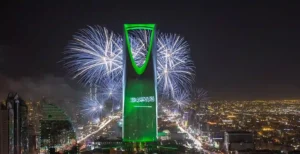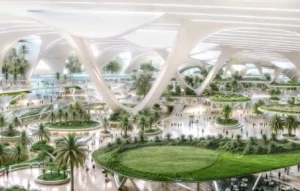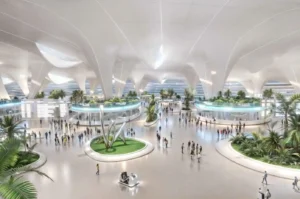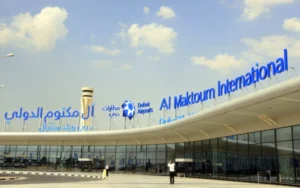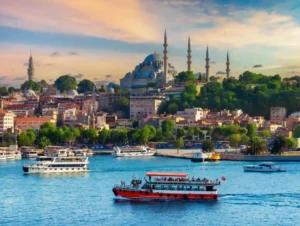Jebel Ali Beach: Dubai’s New Eco-Tourism Venture
Dubai has unveiled a pioneering eco-tourism project under the directives of His Highness Sheikh Mohammed bin Rashid Al Maktoum. The Jebel Ali Beach Development Project spans 6.6 km and has received approval from His Highness Sheikh Hamdan bin Mohammed bin Rashid Al Maktoum, Crown Prince of Dubai.
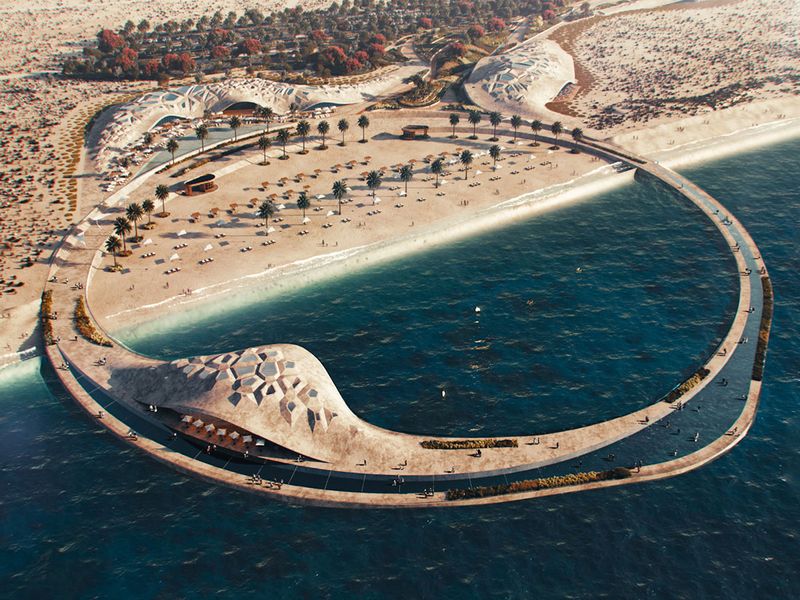
Photo Source: Gulf Today
Dubai has unveiled a pioneering eco-tourism project under the directives of His Highness Sheikh Mohammed bin Rashid Al Maktoum. The Jebel Ali Beach Development Project spans 6.6 km and has received approval from His Highness Sheikh Hamdan bin Mohammed bin Rashid Al Maktoum, Crown Prince of Dubai. This ambitious project aims to transform Jebel Ali Beach into a premier recreational destination focused on environmental preservation. It includes architectural designs for various facilities, offering diverse beach activities and public amenities. Visitors will enjoy an eco-tourism experience, observing turtles in their natural habitat, with protective measures ensuring a safe nesting environment.
His Highness Sheikh Hamdan emphasized creating spaces rich in beaches, open areas, and recreational greens to enhance the well-being of Dubai’s residents. “Our focus is on creating spaces rich in beaches, open areas, and recreational greens. The ultimate goal is to enhance the well-being of the city’s people, create a healthy environment for all, and make Dubai the world’s best place to live in,” Sheikh Hamdan stated. This reflects Dubai’s broader vision of not just being a city of architectural marvels but also a model of sustainable urban living.
Moreover, Commissioner General for Infrastructure, Urban Planning, and Well-Being, His Excellency Mattar Al Tayer, highlighted the project’s unique status within the Jebel Ali Wildlife Sanctuary, a site of global environmental importance. This development will preserve ecosystems, including turtle habitats and mangrove trees, thus contributing to the blue carbon footprint. Al Tayer explained that Jebel Ali beach will stretch 6.6 km and cover an area of 330 hectares. It will feature two distinct areas: a 5 km sandy beach developed by Nakheel and a 1.6 km mangrove beach by Dubai Municipality. The area’s unique ecosystem, supported by mangrove trees, enhances the sanctuary and provides habitats for many living organisms.
Furthermore, the project encompasses a 2 km swimmable beach, a 2.5 km diving area, viewing platforms, and recreational zones, all connected with integrated infrastructure. Roads, parking, cycling tracks, and running tracks will facilitate accessibility and enhance the visitor experience. Divided into three distinct locations—Pearl, Sanctuary, and Nest—the project offers diverse recreational and environmental experiences. The Pearl focuses on family-friendly activities and dining, the Sanctuary on education and turtle rehabilitation, and the Nest on serene environments for relaxation and nature observation.
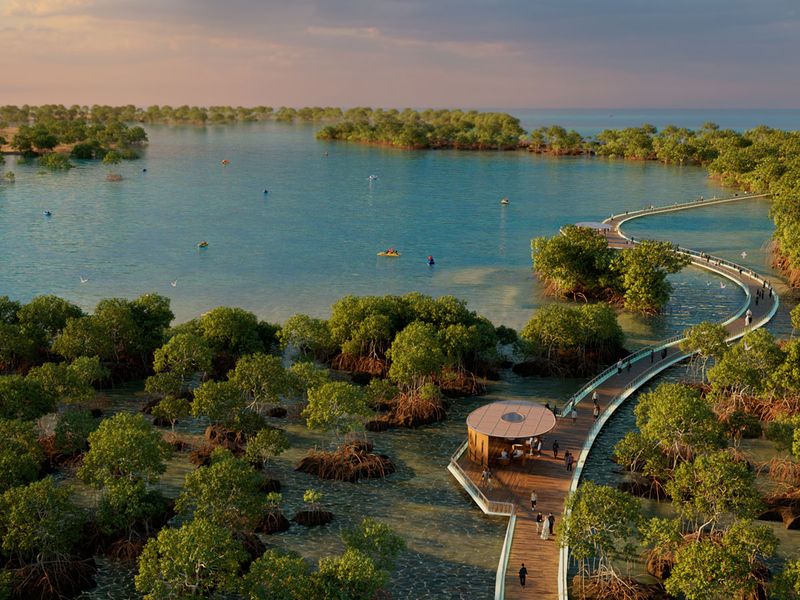
Additionally, advanced technology, including Wi-Fi, AI-based beach rescue services, and enhanced monitoring systems with over 100 cameras, ensures beach safety. The initiative aims for 100% beach development, enhancing public services by 400%, with night-swimmable beaches extended by 56% (450 meters). Cycling and jogging tracks will increase by 285% (15.15 km) and 125% (11 km), respectively, promoting healthier lifestyles for residents and tourists.
In addition, Dubai’s public beaches, like Al Mamzar and Jumeirah, are internationally recognized for their water quality, environmental education, and safety, meeting the Blue Flag standards. The Supreme Committee for Urban Planning and Quality of Life has also awarded contracts for developing Al Mamzar and Jumeirah 1 Beaches, expanding Dubai’s beach infrastructure with modern amenities like advanced lockers, electronic screens, and AI-enhanced beach operations.
In conclusion, the Jebel Ali Beach Development Project exemplifies Dubai’s commitment to sustainable development and environmental preservation. By integrating advanced technologies and protecting local ecosystems, Dubai sets a global standard for eco-tourism and urban development. Consequently, the project enhances residents’ quality of life and attracts tourists seeking sustainable, innovative recreational experiences.


